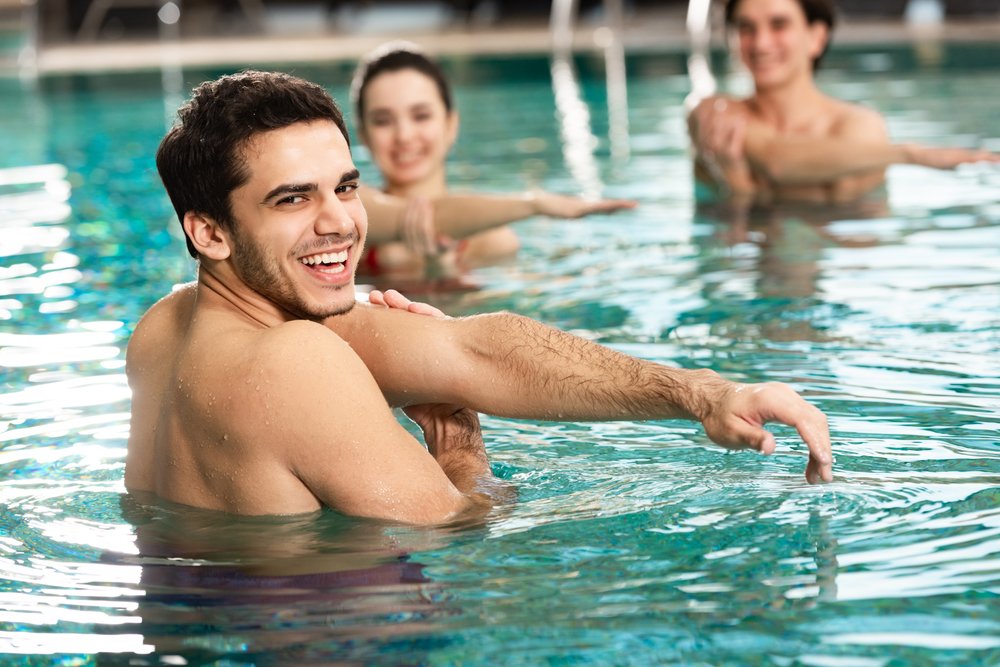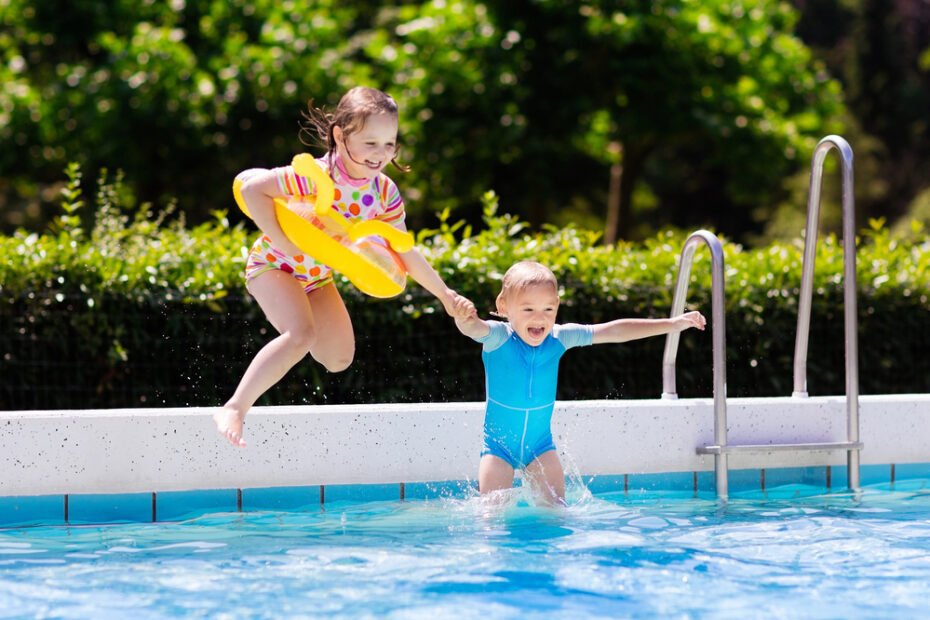Thinking about putting a pool in your Alabama backyard? You’re in good company. Between long, humid summers and mild shoulder seasons, a well-designed pool can add real day-to-day enjoyment—and real value—to your property. But what will it actually cost to build one in Alabama? Below is a clear, practical breakdown of typical price ranges, the factors that move your budget up or down, and smart ways to control costs without cutting corners.
Quick Cost Snapshot
- Above-ground pools: ~$3,000–$12,000 (basic kits to premium resin w/ deck)
- Semi-inground pools: ~$8,000–$25,000 (site, wall system, basic install)
- Vinyl-liner inground: ~$30,000–$60,000+ (size/shape heavily affects price)
- Fiberglass inground: ~$45,000–$85,000+ (shell + crane + set + basic patio)
- Gunite/shotcrete (concrete) inground: ~$70,000–$150,000+ (custom features drive cost)
These ranges reflect typical Alabama pricing as of 2025 for standard backyard conditions. Your final number depends on size, soil, access, finish level, and extras like spas, heaters, or high-end hardscapes.
How Alabama’s Conditions Affect Pricing
Climate: Alabama’s long swim season makes heaters optional for many homeowners, saving upfront hardware costs and long-term fuel or electricity. That said, a modest heat pump can add 1–2 months to each side of your season and runs efficiently in the state’s moderate shoulder weather.
Soil & Site: Much of Alabama features dense clay or loamy soils. Clay can hold water and expand—so proper drainage, over-excavation, and well-compacted base materials matter. Expect a bit more excavation time and occasionally a small bump in cost if your site has poor drainage or a high water table, especially in low-lying coastal areas.
Frost Line: The frost line is relatively shallow compared to northern states. That generally means simpler freeze-protection measures and slightly lower plumbing insulation costs.
Local Codes & Permits: Counties and municipalities across Birmingham, Huntsville, Mobile, Montgomery, and the Gulf Coast have varying requirements for setbacks, fences, barriers, alarms, and electrical bonding. Budget $500–$3,000 for permits, inspections, and code-driven upgrades. Coastal wind zones can also affect enclosure or screen structure requirements.
Access: Narrow side yards, trees, utility lines, and septic fields can affect equipment access and crane placements (important for fiberglass shells). Limited access can add $1,000–$5,000+.
Cost by Pool Type
1) Vinyl-Liner Inground ($30,000–$60,000+)
- Why choose it: Most budget-friendly inground path; flexible shapes; soft underfoot.
- Where costs land: Standard 16’×32’ rectangles with basic white steps and ~400–600 sq. ft. of concrete decking often fall in the $35K–$50K range in Alabama.
- Trade-offs: Liner replacement every 7–10 years ($3,000–$6,000+ depending on size/steps). Susceptible to punctures from pets, sharp toys, or mishandled maintenance.
2) Fiberglass Inground ($45,000–$85,000+)
- Why choose it: Fastest installation (often 2–4 weeks once digging begins), smooth gelcoat, integrated steps/sun shelves, low maintenance.
- Where costs land: Mid-size shells (30–35 ft) with a salt system and ~600–800 sq. ft. of decking typically run $55K–$75K. Add cranes, access matting, and retaining if needed.
- Trade-offs: Limited to manufacturer shapes/sizes. Upcharges for custom color finishes, tanning ledges, and integrated spas.
3) Gunite/Shotcrete (Concrete) Inground ($70,000–$150,000+)
- Why choose it: Maximum design freedom—freeforms, ledges, beach entries, attached spas, complex water features, vanishing edges.
- Where costs land: Simple rectangles may start around $70K–$90K; custom shapes with spa, lighting, automation, and upgraded finishes (pebble or glass) often land $100K–$150K+.
- Trade-offs: Longer build time (8–14+ weeks), higher maintenance than fiberglass (surface chemistry), and higher upfront cost.
The “Extras” That Move Your Budget
Decking & Hardscape
- Brushed concrete: ~$8–$14/sq. ft.
- Stamped/colored concrete: ~$14–$22/sq. ft.
- Pavers (concrete): ~$18–$30/sq. ft.
- Natural stone/travertine: ~$25–$45/sq. ft.
A typical Alabama project includes 600–1,000 sq. ft. of deck. That alone can add $6,000–$30,000+, depending on finish.
Fencing & Safety
- Code-compliant barriers are non-negotiable. Budget $2,500–$8,000+ depending on length, material (aluminum, vinyl, wood), and gate hardware. Many municipalities require alarms on doors leading to the pool area.
Filtration & Sanitization
- Variable-speed pump (highly recommended in AL): +$800–$1,800 upfront, but saves energy and is often code-favored.
- Cartridge or sand filters: similar cost bands; cartridges save water (less backwashing).
- Saltwater chlorination: +$1,200–$2,500; reduces manual dosing but still needs chemistry balance.
Heating & Cooling
- Heat pump: $2,500–$6,000 installed; efficient in AL’s climate.
- Gas heater (propane/natural gas): $2,000–$4,500 installed; faster heating, higher operating cost.
- Chillers (or reversible heat pump): $2,500–$5,000—useful for the hottest months if water feels bathtub-warm.
Lighting & Automation
- LED pool lights: $400–$1,200 each installed.
- Automation panels + app control: $1,200–$3,500; convenient for pumps, lights, heater, and schedules.
Water Features & Add-Ons
- Sheer descents/bubblers: $800–$2,500 each.
- Deck jets: $300–$700 per jet installed.
- Tanning ledge: $1,500–$5,000 (type-dependent).
- Attached spa: $8,000–$20,000+ (integrated gunite spa at the higher end).
Landscaping & Drainage
- Swales, French drains, and grading to route stormwater away from the pool and structures: $1,500–$7,500+ depending on lot.
- Plantings/irrigation: highly variable; Alabama’s clay soils benefit from thoughtful drainage planning.
Ongoing Costs in Alabama
Electricity: A variable-speed pump running efficiently can keep electric costs modest—often $20–$60/month in season depending on schedule and utility rates. Add more for heaters.
Chemicals: With a salt system or careful manual dosing, expect $300–$700/year. Warmer, longer seasons mean more active management in peak summer.
Maintenance: DIY weekly care is common. Professional service (brush, vacuum, chemistry) typically runs $100–$200+/visit depending on frequency and region (Gulf Coast vs. inland metros). Vinyl liner replacements every 7–10 years; resurfacing for gunite every 10–15+ years depending on finish.
Insurance & Property Tax: Notify your insurer; most policies adjust modestly for a code-compliant fence and safety measures. Property tax impact varies by county and improvements.

City-by-City Notes
- Birmingham & Hoover: Rolling terrain and established neighborhoods may mean tighter access and more tree removal or root concerns. Budget for potential crane or limited-access surcharges.
- Huntsville & Madison: Busy market thanks to growth; demand can push labor prices higher in peak season. Red clay common—plan for proper drainage.
- Montgomery & Prattville: Competitive installer field; good opportunities to compare multiple bids with similar specs.
- Mobile, Baldwin County, Gulf Shores/Orange Beach: Higher water tables and hurricane-prone wind zones affect engineering for enclosures and sometimes drainage/retaining. Coastal corrosion can justify upgraded hardware and lighting niches.
Ways to Save Without Regrets
- Choose a simpler shape. Rectangles are cost-efficient for vinyl and gunite, and they play well with automatic covers (which can pay for themselves over time in safety, heat retention, and cleanliness).
- Phase your project. Build the pool and a modest concrete deck now; add pavers, pergola, outdoor kitchen, or fire pit later.
- Right-size the equipment. Oversized pumps and heaters drive up upfront and operating costs. A good builder will match pump horsepower and filter size to your pool volume and plumbing runs.
- Go variable-speed. In Alabama’s long season, the energy savings add up.
- Compare apples to apples. When you get bids, standardize a spec sheet (pool size, deck square footage, equipment brands/models, number of returns and skimmers, electrical runs, fence footage). This avoids “cheap” bids that are missing line items you’ll pay for later.
- Mind the access. If you can temporarily remove a section of fence or trim trees to improve equipment access, you may avoid crane or mini-excavator surcharges.
A Sample Budget (Fiberglass, Mid-Size)
- 34’ fiberglass shell + set: $35,000–$45,000
- Excavation, base, plumbing, backfill: $7,000–$12,000
- Equipment (VS pump, filter, salt system, LED light): $5,000–$8,000
- Decking (700 sq. ft. brushed): $7,000–$10,000
- Electrical & bonding: $2,000–$4,000
- Fence allowance: $3,000–$6,000
- Permits/engineering/inspections: $1,000–$2,500
Estimated total: $60,000–$87,500
Add-ons like a heater (+$3K–$6K), pavers (+$8–$15/sq. ft. more than brushed), or an attached spa (+$10K–$20K+) will push the total higher.
Timeline Expectations
- Design & permitting: 2–6 weeks (varies by municipality and HOA)
- Excavation to water (vinyl/fiberglass): 2–4 weeks once started
- Gunite/shotcrete: 8–14+ weeks (cure times, subs, finishes)
- Landscaping/final touches: 1–3 weeks
Rain can slow concrete work and excavation—factor in some weather flexibility, especially during Alabama’s summer storm patterns.
Choosing the Right Builder
- Licensing & insurance: Verify state and municipal licensing. Ask for proof of general liability and workers’ comp.
- References & portfolios: Look for recent, local projects similar to your vision. Ask about after-install support and responsiveness.
- Written scope: Insist on a detailed proposal that spells out excavation depth, spoils removal, base material, plumbing runs, electrical, number/type of lights, equipment brands/models, decking square footage and finish, fence specs, and all inspections.
- Warranty: Structure, plumbing, equipment, and surface warranties should be clearly defined.
Final Take
For most Alabama homeowners, a realistic 2025 budget for a quality inground pool lands between $45,000 and $120,000, depending on type and features. Vinyl is the budget-friendly workhorse, fiberglass hits a sweet spot of speed and low maintenance, and gunite offers ultimate customization. The smartest way to dial in your number is to define your must-haves (size, shape, deck area, sanitization) and get three comparable bids from reputable local builders—especially if you’re near the coast or on a tricky lot.
With a clear plan, code-compliant safety measures, and right-sized equipment, you’ll enjoy an Alabama swim season that starts early, runs long, and makes home your favorite place to be.
